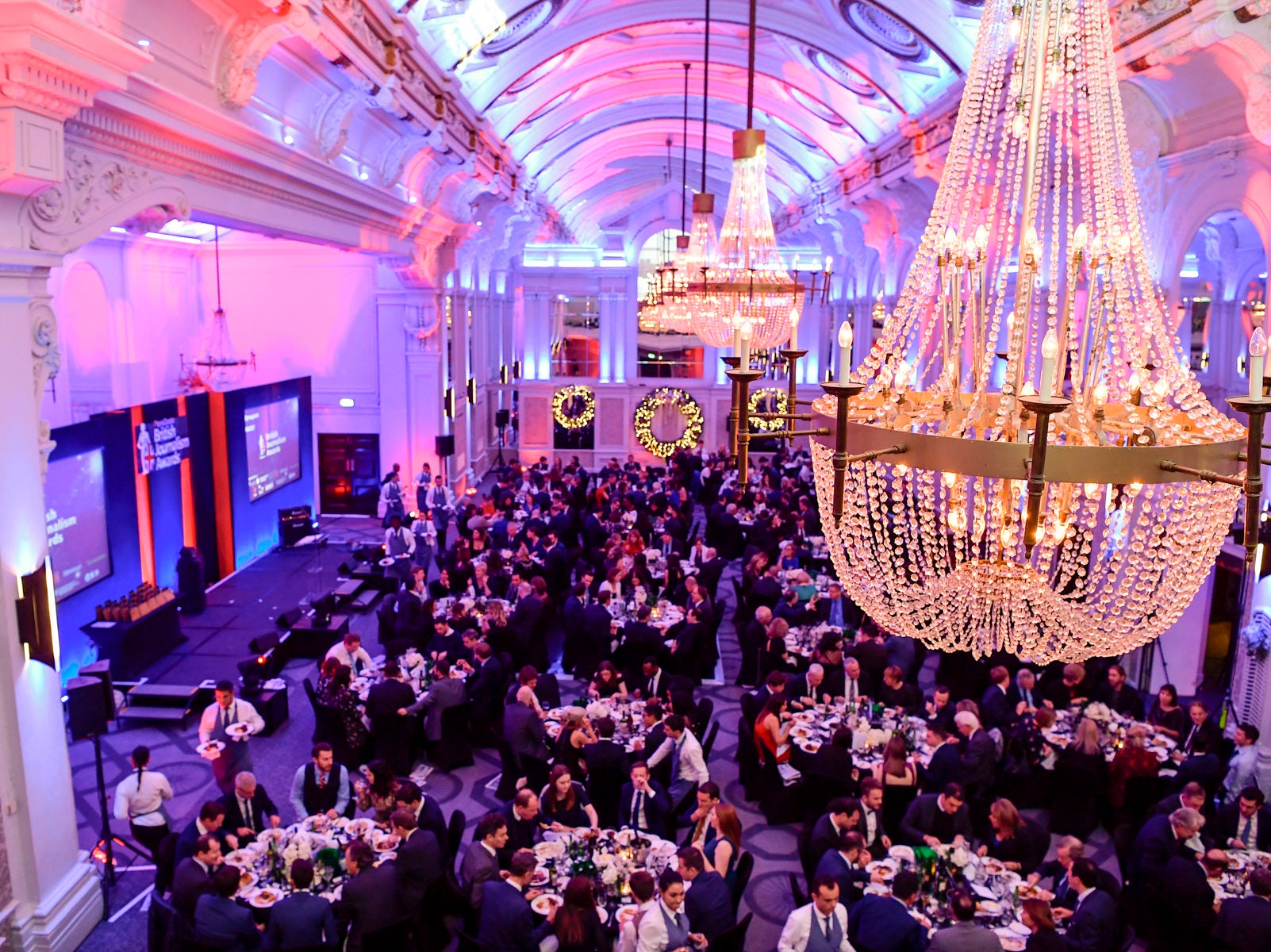
Films celebrating US journalists (such as The Post reviewed here in Press Gazette) are much in vogue at the moment.
In the UK, for a depiction of journalism in popular drama you have to head to the Duke of York’s theatre in London to watch Ink – a riveting but not always flattering account of how Rupert Murduch revolutionised popular journalism with the launch of The Sun.
For a movie which all British journalists can get inspired by I recommend this video of the Press Gazette British Journalism Awards, held on 11 December at 2017.
This was the sixth year of the event – held to celebrate public interest journalism – and it was a glitzy affair held at the De Vere Grand Connaught Rooms in London.
Half a dozen feature films could be made about the winners (full list here) who included:
- Technology journalist of the year Carole Cadwalladr of The Observer – one woman who stood in the way of the tech giants trying to subvert democracy
- Science journalist of the year Steve Connor, who died before he found out that he had won his award – but who provided a posthumous acceptance speech which railed against the “corrosive” system of embargoes in science journalism
- Sports journalist of the year Daniel Taylor who blew the lid off revelations of child abuse in football which have led to nearly 300 potential suspects being identified involved with all levels of the game
- Young journalist of the year Gareth Browne who travelled to Iraq under his own steam in September 2016 and covered the entire nine-month battle for Mosul as a freelance
- Investigation of the year winners Channel 4 Dispatches whose journalists spent 18 months exposing the scandal of thousands of Syrians who have disappeared into President Assad’s network of detention centres
- And not forgetting Inside Housing, the weekly trade magazine which took home the gong for News Provider of the Year after being the only title to expose the risk posed to tower block residents from flammable panels BEFORE last year’s Grenfell Fire.
Quotes from the winners include:
Carole Cadwalladr: “Our democracy is being undermined by these few billionaires who own these few technology companies who now have all the power in the world.”
Ramita Navai of Channel 4: “As soon as we we hit the ground we realised the story was much bigger than anyone had thought and that thousands were being held and are still being held at secret prisons across the country.”
Gareth Browne: “I genuinely felt the battle against Isis was more than just a news story, it was a defining narrative of our times. To be able to shed some light on that was a huge honour and it went beyond a job for me. It was a personal responsibility.”
Sophie Barnes of Inside Housing: “We were writing about fire safety before Grenfell Tower happened and trying to warn people about it and trying to get the message out there.”
Will Hurst of Architects’ Journal: “Public interest journalism is under attack in all parts of the world, the accursaion of fake newsis often thrown at real journalists who trying to do in depth work and expose social and political ills.”
UK journalists are less trusted by the general public that estate agents. And after the hacking scandal this is not altogether surprising.
But the work ondisplay at the British Journalism Awards was often not-only life-saving, but life-risking for the reporters behind it.
As the FT’s Presidents Club expose showed again this week, there is so much good done by British journalism. It is an industry which everyone who works in it should be proud to be part of.
Email pged@pressgazette.co.uk to point out mistakes, provide story tips or send in a letter for publication on our "Letters Page" blog
